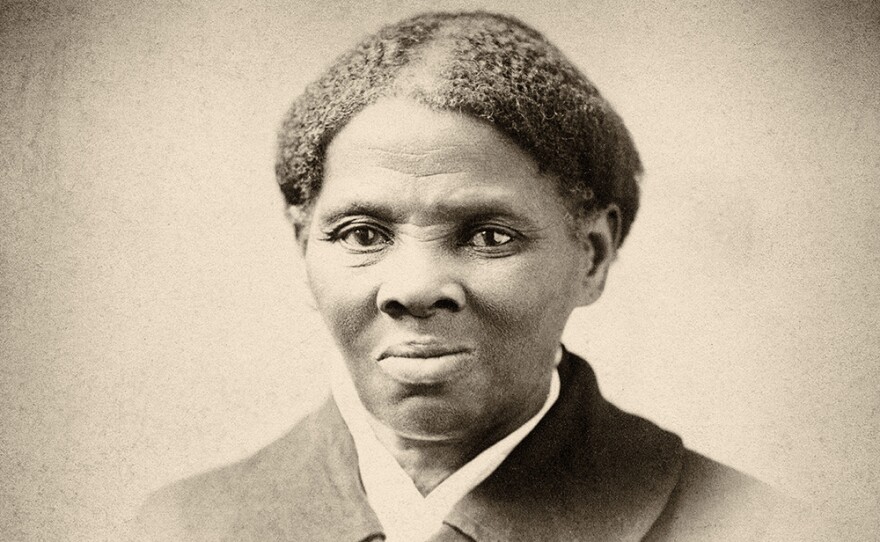Tubman

In the annals of American history, there are figures whose courage and resilience stand as beacons of hope amidst the darkness of oppression. Among these figures is John Tubman, a name less celebrated than his wife, Harriet Tubman, yet equally significant in the fight against slavery. While Harriet’s exploits as a conductor of the Underground Railroad are well-documented, John Tubman’s contributions have often been overshadowed. However, his role in supporting Harriet’s endeavors and his own efforts in the abolitionist movement are vital chapters in the narrative of freedom and human dignity.
John Tubman was born into slavery around 1814 on the Brodess plantation in Dorchester County, Maryland. Little is known about his early life, but like many enslaved individuals of his time, he endured unimaginable hardships under the oppressive system of bondage. Despite the constraints imposed upon him, Tubman exhibited resilience and determination that would later characterize his actions as a free man.
It was during his time enslaved that Tubman met and married Araminta Ross, who later became known as Harriet Tubman. Their union would prove to be not only a personal partnership but also a powerful force in the struggle for liberation. Harriet’s escape from slavery in 1849 marked a turning point for both of them. Rather than accept their separation, John resolved to join his wife in the pursuit of freedom.
John Tubman’s decision to follow Harriet was an act of profound courage. Escaping slavery was a perilous endeavor, with the risk of capture and retribution ever-present. Yet, Tubman’s determination to reunite with his wife and to live as a free man drove him forward. His journey to freedom was not without its challenges, but he eventually reached the safety of the North, where he and Harriet settled in Philadelphia.
In Philadelphia, the Tubmans found themselves in the midst of a vibrant community of abolitionists and activists. It was here that John Tubman became involved in the abolitionist movement, lending his voice and support to the cause of emancipation. While Harriet gained renown for her daring rescues as a conductor of the Underground Railroad, John played a quieter yet no less crucial role in the fight against slavery.
As a free man, John Tubman used his newfound liberty to advocate for the rights of his fellow African Americans. He participated in meetings and rallies, speaking out against the injustices of slavery and advocating for the abolition of the institution. His experiences as a former slave lent authenticity and urgency to his words, resonating with audiences and galvanizing support for the abolitionist cause.
Despite his contributions, John Tubman’s role in the abolitionist movement often went unrecognized. The focus on Harriet’s exploits as a conductor of the Underground Railroad overshadowed his own efforts and sacrifices. However, historians are beginning to reevaluate his legacy, recognizing the integral role he played in supporting Harriet and advancing the cause of freedom.
In addition to his activism, John Tubman played a crucial role in supporting his wife’s endeavors as a conductor of the Underground Railroad. While Harriet was the public face of their operations, John provided vital assistance behind the scenes, offering shelter, resources, and guidance to freedom seekers on their perilous journey northward. His knowledge of the local terrain and his network of contacts proved invaluable in ensuring the success of their missions.
Moreover, John Tubman’s steadfast support and encouragement were instrumental in sustaining Harriet’s resolve in the face of danger and adversity. His unwavering belief in her abilities and his willingness to stand by her side empowered Harriet to undertake her daring rescues with confidence and determination. Together, they formed a formidable team, united in their commitment to the cause of freedom.
Despite the risks involved, John Tubman remained dedicated to the principles of liberty and justice throughout his life. He continued to advocate for the rights of African Americans even after the abolition of slavery, recognizing that true freedom could only be achieved through the eradication of systemic racism and inequality. His legacy serves as a reminder of the importance of perseverance and solidarity in the face of oppression.
Conclusion
John Tubman‘s contributions to the abolitionist movement were essential in the fight against slavery. His courage, resilience, and unwavering commitment to the cause of freedom inspired others to join the struggle for emancipation. While his role may have been overshadowed by his wife’s more famous exploits, John Tubman’s legacy deserves to be remembered and celebrated as that of a true hero of the Underground Railroad.





